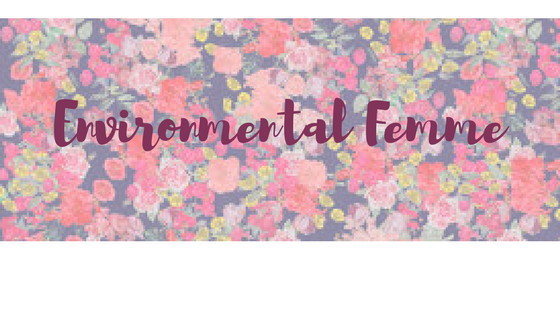Talk At Me
This interview was first recorded in December 2014 when Environmental Femme was still a final project and hosted on tumblr.com
The following is the first of a series of interviews entitled "Talk At Me" in which fellow femmes responded to questions around femininity, feminism, and environmentalism. Their opinions are entirely their own and do not necessarily represent the views of the mod, but exist here as expressions of the multiple ways people hold these identities and define them on their own terms.
Mod: How do feminism and environmentalism intersect? What are their common goals, where are their conflicts/disconnects?
MC: Feminism and environmentalism intersect through ecofeminism! The work that Vandana Shiva and her contemporaries do casts a really interesting light on the underbelly of environmentalism and whose voices are heard in environmental activism compared to whose voices are not heard enough. Feminism and environmentalism, as with any movements, intersect in the form of wanting to provide a better future (whether it be for the planet itself or the people on the planet, depending on the movement). I think that they conflict in places wherein women are not considered to be as viable sources of information about environmental justice as men or are not represented in situations of protest/organization/activism as much as men, especially when the media covers environmental protests.
Mod: What is the face of environmentalism on this campus? Why aren’t femme women recognized on the front lines? How is your activism viewed and heard on campus?
MC: I don't want to generalize the face of environmentalism on this campus. Environmentalism in Oberlin isn't just one unified front. There are a diverse group of people who work on projects related to food justice, sustainability, anti-fracking, farming, urban planning, eco-friendly design/technology, and a plethora of other topics, and each of those organizations/groups/clusters has its own different set of people who are on the front lines. My activism is viewed and heard by an incredibly strong and powerful set of people who care strongly for the environment and for nature, and I think that a lot of how I feel/a lot of things that I'm passionate about are represented by voices that both resemble mine and differ from mine (although I remain conscious of the fact that everyone is unique in their situations and connections to nature/the environment and I know that my voice comes from a background of privilege that I must be conscious of when discussing issues of environmental justice).
Mod: What are femmes’ relationships with the environment? What is the internal struggle? What do femmes have to say about nature, activism, and their identities? How do you embody an identity that engages with the production of self from an environmental standpoint?
MC: Again, I really don't think I want to make any generalizations. My own struggle with environmentalism as a cisgendered and privileged woman comes from the fact that I'm from a big city and therefore am very much unaware of the environmental struggles of non-urban communities (and generally, communities that are not my own). I am conscious of my own environmental impact, I plan to devote my life to protecting the environment, but I know that I also have a lot more to learn and a lot more work to do before I can even fully call myself an activist. As a woman, I relate to stories of the subjugation of nature as I have felt subjugated because of my gender in the past (and still do, even on this campus). I feel that in empowering women to be at the forefront of environmental activism/justice, there may also be an opportunity to empower women to consider their role in activism and in society and reexamine existing hierarchal structures that they may not have been attuned to in the past.
Thanks so much MC for this interview and your participation in my project!
